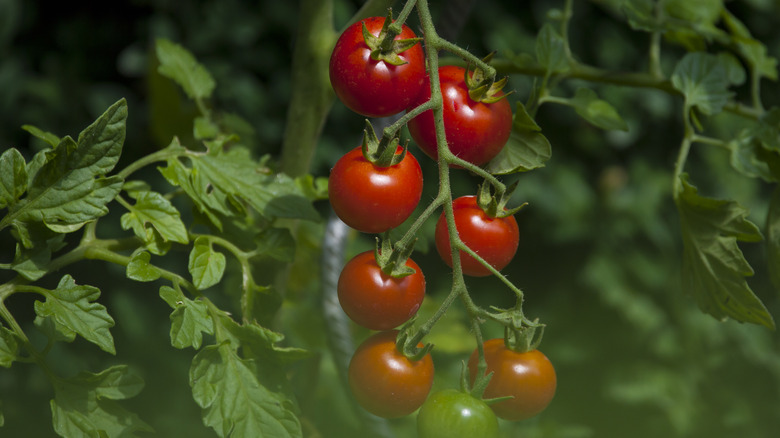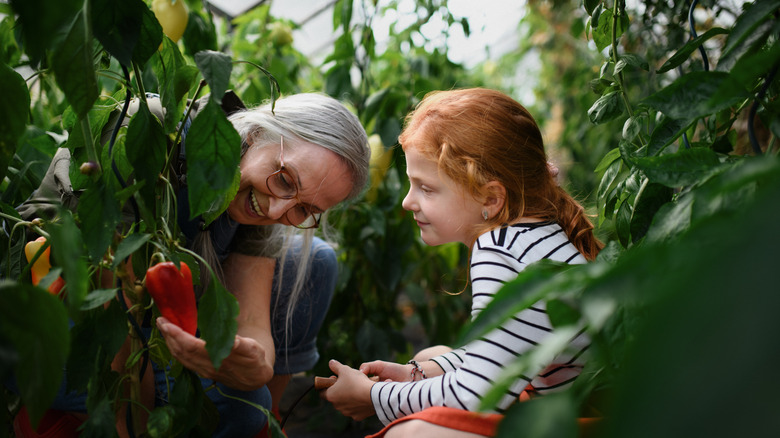The Big Mistake To Avoid When Harvesting Produce From Your Garden
Unless you live in constantly mild climes, spring and summer are exciting seasons for gardeners, as you ready your seeds, transplant them into the ground, continue to tend to them, and then finally — finally! — pick and enjoy the fruits of your labors, depending on the location and the crops being grown. But despite the importance of home gardening, sometimes we can get a little distracted and forget to regularly harvest our produce. That, according to Luke Hammond — farmer, educator, and Seedtime director of brand advancement — is a big mistake.
While it's true you can sometimes find use for overripe fruit, like blending it into a tangy salad dressing, that typically refers to fruit that's been picked at the right time and then has been left sitting on your counter, not fruit that has overgrown on the vine. "Overripe produce often becomes pithy, bitter, or overly soft as sugars begin to convert and cell walls break down," Hammond told us.
And those consequences to flavor and texture aren't all that can go wrong when it comes to overripe fruits and vegetables left on the vine or tree. "Late-picked fruits are more prone to bruising, spoilage, and rapid decay," Hammond continued. Ever notice an abundance of flies hanging out around tomatoes that have gotten so ripe they burst on the vine and started to brown? That's because, as he also pointed out, they attract pests — and even diseases.
Another big reason you should pick your produce regularly
As if a breakdown in the luscious, sun-warmed flavors (tomatoes are already becoming less flavorful, as it happens), the ruination of your hard work, and the attracting of insects and disease weren't enough, Luke Hammond told us there's another major reason why, once it's ready, you should pick your produce with all due haste: the plants will start to produce less of your seasonal summer fruit, so your harvest won't be quite as bountiful as it might have been. The reasons this happens are twofold.
First, there's the biological trigger: "When fruit matures and seeds are ready, the plant senses its reproductive job is done, which can reduce or stop further fruiting," Hammond explained. Just by picking your fruits and vegetables regularly once they've ripened, you can increase how much and how often your plants fruit by signaling to the plant that its work isn't done yet.
Hammond also pointed out the principle that increased picking directly results in greater growth. "Removing mature fruits encourages the plant to produce more flowers and fruit, similar to how deadheading flowers redirects energy toward new blooms instead of seed development," he said. By picking the ripe produce, you're essentially freeing up more of the plant's energy so it can put it toward new fruit, rather than waste it on old.


